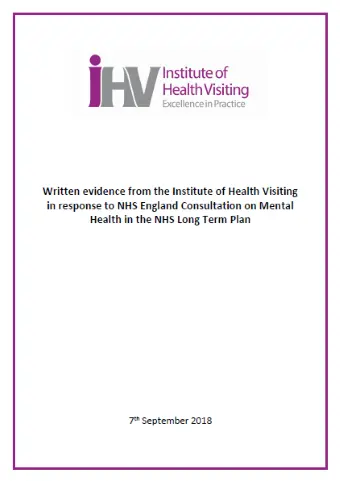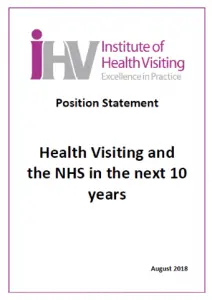The Institute of Health Visiting (iHV) has published its response to the consultation – Mental Health in the Long-Term Plan for the NHS.
The consultation is to identify opportunities to deliver the NHS’s goal to provide world-class mental healthcare – improving the outcomes for everyone who uses the NHS services.
Dr Cheryll Adams CBE, Executive Director, Institute of Health Visiting said:
“At the Institute, we firmly believe there is no health without mental health, which is why we have perinatal and infant mental health (PIMH) as a priority focus. We welcome the opportunity to respond to this consultation to ensure that all families get consistent, accessible, high quality care and support for their mental health during the perinatal period. Our response reflects the many consultations and surveys we have done with our members and other stakeholders over the recent months and years.”
The Institute’s response includes its top three priorities in mental health:
- Resourcing health visiting services through joint commissioning which formally requires health visitors to take a specific lead for perinatal and infant mental health;
- Closing the gap between knowledge of what affects child and family mental health, and how services are commissioned and organised to implement this knowledge;
- A need to concentrate efforts to create a much wider understanding of the epidemiology of mental illness with so much of it having its origins in the very first years of life.
Dr Adams continued:
“Early intervention for families in the perinatal period will reduce the burden of mental illness across the life-course! We have to get that message over to politicians and policy makers, so that funding is allocated upstream and not disproportionately spent on secondary and tertiary care, fixing problems that could have been prevented from occurring in the first place.
“This submission focuses on how, with the right support from the NHS and partner organisations, health visitors can ensure that all families with children receive the right care and support for their mental health, at the right time, in the right place.”






